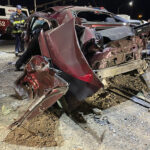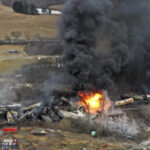USAction on Friday urged members of the Senate Judiciary Committee to reject a proposal to substitute a trust fund for current and future litigation.
Sponsored by Judiciary Committee Chairman Orrin Hatch, (R-Utah), USAction said the current version of the proposed trust fund will hurt workers and their families while allowing asbestos and insurance companies to escape their true liability.
“Senator Hatch has proposed an asbestos ‘trust fund’, but his proposal betrays the trust of the people it is supposed to serve and it does not provide adequate funds to compensate these victims’ losses. It is only fair to insurance companies and the asbestos companies who knowingly poisoned millions of workers. It is brutally unfair to those workers and their innocent families and loved ones,” said Jeff Blum, executive director of USAction.
USAction has launched a nationwide TV advertising campaign denouncing the proposal. The ad campaign features Brian Harvey, who has mesothelioma a fatal cancer reportedly caused by asbestos exposure. He had appeared in earlier ads supporting an asbestos proposal but says he can’t back Senator Hatch’s plan.
In the ad, Harvey says, “I went on television supporting the asbestos legislation in Congress. Then I learned the facts: innocent people like myself would be left out, victims are penalized for having health insurance, and more people are being exposed to asbestos that is still being produced. This bill really benefits the asbestos and insurance companies and not the people who need the help.”
In another ad, Charisse Dahlke talks about losing her husband when he was only 53 years old. Suddenly she was a young widow with four kids. Under the Hatch proposal, Mrs. Dahlke reportedly wouldn’t receive enough in benefits to cover their needs.
“Senator Hatch’s bill lets companies like Halliburton, Honeywell and GE will walk away from multi billion dollar asbestos liabilities. They’ll only have to pay a fraction of what they owe. Halliburton – vice president Cheney’s former company – agreed to a $4.2 billion settlement last December. Yet under this proposal Halliburton would only pay a maximum of $675 million. That would be a $3.5 billion gift to Halliburton from U.S. Senators. Sick and dying asbestos workers and their families are truly missing from this proposal. Victims exposed after 1982 don’t get any compensation at all, yet every day workers are still being exposed,” said Blum.
Friends of the Earth has also joined the ad campaign because Senator Hatch’s proposal reportedly fails to ban asbestos, endangering the environment as well as workers and consumers nationwide.
“Not only are workers today still being exposed to asbestos, but homeowners and consumers nationwide are threatened by the deadly fibers too. Asbestos is still being used in products and in the workplace. The U.S. Geological Survey (USGS) estimates that more than 29 million pounds of asbestos were used in product manufacturing in the U. S. during 2001. The Environmental Protection Agency and other government agencies estimate that between 12 million and 35 million structures in our nation contain Zonolite an asbestos laden product,” said Brent Blackwelder of Friends of the Earth.
Blackwelder called on Senator Hatch to fulfill his pledge at a June 4th hearing to include Washington Senator Patty Murray’s bill to ban asbestos.
USAction also said that there were a number of major problems with Senator Hatch’s proposal.
*At $108 billion, the size of the trust fund is too small to meet likely future claims, meaning future victims would have nowhere to turn when the fund goes broke.
*Under the financial structure of Senator Hatch’s proposal, current
victims might not receive any compensation for as long as eight to
nine years.
*Some injured workers who are too sick to stay on the job don’t
receive any compensation at all. Some smokers receive less compensation or none at all.
*No one exposed after 1982 receives compensation – even though
workers today are still being exposed.
*Victims are penalized for their health and life insurance and other
financial resources (collateral source rule).
*Asbestos companies like Halliburton and Honeywell trade their billion dollar asbestos liability for million dollar paydays:
– Halliburton — $4.2 billion in asbestos liabilities vs.
$675 million
– Honeywell — $3.4 billion in asbestos liabilities vs.
$675 million
– General Electric — 90,000 pending claims
– Ford — 25,000 pending claims; costs will be “substantial”
*Insurance companies receive a huge break – total insurance industry payments would be $45 billion — the industry can afford to pay $120 billion.
*The Hatch bill also allows insurers to recover their fund contributions from their re-insurers – substantially reducing the $45 billion they are supposed to pay.
*Some small businesses will lose under Senator Hatch’s bill because it doesn’t allow defendant companies to count their insurance payments against what they owe.
*A new, untested federal bureaucracy means claimants would be required to navigate an agency that does not exist today and has no
employees or funding.
*The burden of establishing eligibility is too strict: A compensation
system should simplify recovery for victims. The bill does the opposite: it creates new, harsh and unnecessary proof requirements.
*Under the proposal, there would be a huge cost shift from defendants to employers’ health plans and Medicare: Currently, workers repay employers, health plans or Medicare if they recover for asbestos injuries. Under the bill, these collateral sources become the
primary payors for asbestos illnesses. Asbestos defendants and insurers will benefit, while health plans and Medicare bear the increased costs.
Was this article valuable?
Here are more articles you may enjoy.

 Report: Vehicle Complexity, Labor ‘Reshaping’ Auto Insurance and Collision Repair
Report: Vehicle Complexity, Labor ‘Reshaping’ Auto Insurance and Collision Repair  Norfolk Southern to Pay $600 Million to Settle Ohio Spill Case
Norfolk Southern to Pay $600 Million to Settle Ohio Spill Case  Tesla Settles Over Fatal Autopilot Crash on Eve of Trial
Tesla Settles Over Fatal Autopilot Crash on Eve of Trial  Viewpoint: How Generative AI Enables a Brighter Claims Future in 2024 and Beyond
Viewpoint: How Generative AI Enables a Brighter Claims Future in 2024 and Beyond 